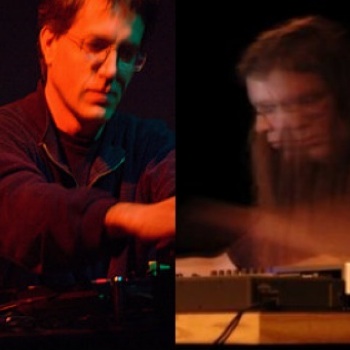
 |
passed aside (art bears remix album)thomas dimuzio and wobbly
|
|
reviews “I suggest Dimuzio and Wobbly’s work for open minded people looking for a compelling musical experience.” —Technosonics Technosonics Luigi Russolo writes in The Art of Noises “pure sound with its littleness and its monotony, fails to arouse any emotion” (Russolo 6). This notion has led to a search for “more complex polyphony,” and “a greater variety of sounds” ultimately leading to the concept of “musical noise.” Russolo writes this in 1913, inspired by the introduction and increase in machine sounds into a previously more silent world, yet his ideas remain relevant with many modern musical creations. Dimuzio and Wobbly’s album “Passed Aside” reflects the essence of musical noise by evoking sentiment through an unusual auditory experience. Although my initial inclination is to describe the compilation as eerie, the intricacies of the work warrant a more detailed evaluation. Like the age old question of what is art?— listening to “Passed Aside” has me asking: what is music? I feel compelled to call Dimuzio and Wobbly’s compositions “thinking sound.” Similar to how abstract paintings are subject to multiple interpretations, many of which vary based on the viewers on disposition, the pieces we are listening to offer an exploratory perspective. Rather than pumping this jam up at your wedding, I suggest building a fort in a dark corner of your house, throwing in a couple of fun-house mirrors, and steering clear of any hallucinogenic drugs if you can’t handle rats and monkeys crowding your saloon or visits from demonic women. One facet I found particularly fascinating in the songs “I Transform,” “Crowd The City,” and “Lion and Snake” is the use and manipulation of voice. These songs have the occasional interjection of a woman speaking or singing, yet the words are difficult to decipher. Although I am able to deduce an occasional word, the overall sense feels nonfigurative. It is the dissonance and shrillness in the character of the voice that evokes the emotional response, making it viscerally spine-chilling. The role of voice in these pieces is different than anticipated because it does not demand interpretation but rather it emphasizes the influence of the experience. |